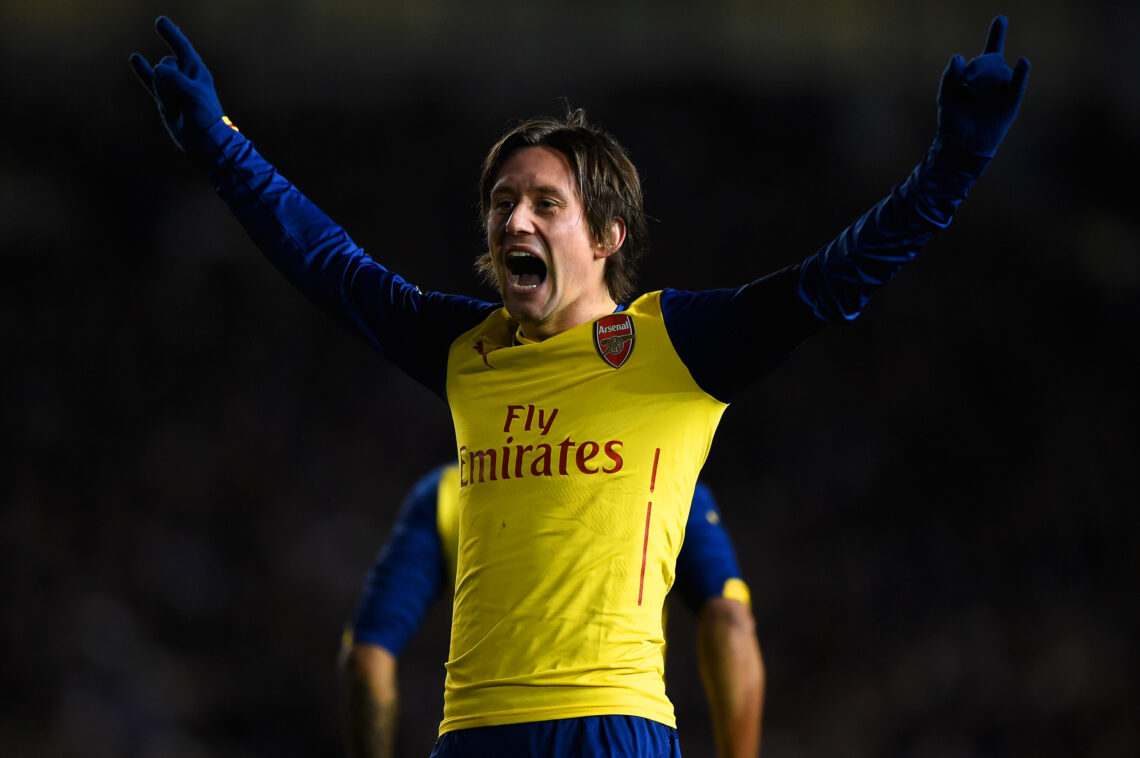On July 1, 2006, Arsenal signed Tomas Rosicky from Borussia Dortmund for €10 million. 19 years later, his name still resonates with those who value elegance and intelligence on a football pitch.
Born in Prague in 1980 to a family steeped in sport, Rosicky was destined to excel. He came through the ranks at Sparta Prague, won a league title as a teenager, and went on to shine at Dortmund, where he claimed a Bundesliga title and reached the UEFA Cup final.
His technical quality was clear, and his loyalty throughout his career became a rare trait in an era where money often drives decisions. In the same way fans weigh the value of signings against cost or search for better deals in everyday life, Rosicky’s worth came not from numbers but from the intangible brilliance he brought each time he played.
When Arsène Wenger brought him to Arsenal before the 2006 World Cup, Rosicky said he was joining “the best club in Europe.” His first season offered moments of promise, including a stunning strike in the Champions League against Hamburg, but also inconsistency as Arsenal adjusted to life at the Emirates.
By 2007–08, Rosicky was central to Arsenal’s title challenge. He had scored six league goals by January, but injury struck cruelly in an FA Cup tie against Newcastle. What was initially thought to be a minor hamstring issue became an 18-month absence, and the comeback was filled with setbacks. Through it all, he remained committed and professional.
He returned in 2009 and showed he had not lost his touch. A goal and assist against Manchester City, and later contributions throughout the season, proved his value. He was no longer just a creator. Rosicky had become a conductor, someone who dictated rhythm and elevated Arsenal’s midfield.
His goals, while not numerous, were nearly always meaningful. His third goal in the famous 5–2 comeback against Tottenham in 2012, and the sensational winner at White Hart Lane in 2014, cemented his place in Arsenal folklore. That same season, his goal against Sunderland, finishing a move involving Wilshere and Giroud, was hailed as one of the greatest team goals ever scored.
In 2014 and 2015, Rosicky finally lifted silverware, winning two FA Cups. Though his appearances were fewer, his influence was undiminished. He celebrated every triumph with a fervour that reflected a deep bond with the club and its supporters.
His farewell in 2016 was emotional and deserved. Teammates wore his name. Fans rose to their feet. The Emirates paid tribute to a player who never sought the spotlight, but always delivered quality.
Arsène Wenger put it simply: “If you love football, you love Tomas Rosicky.” Arsenal did, and always will.
